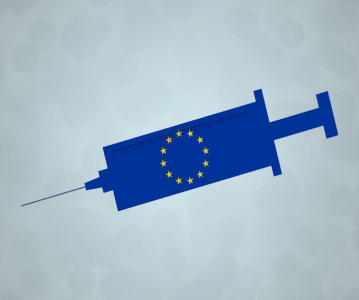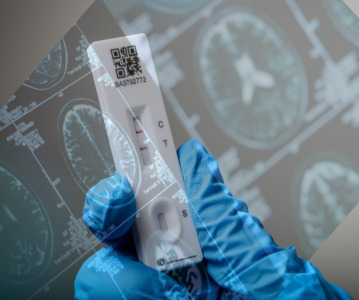SGS introduces new comprehensive drug compatibility study testing at expanded Shanghai facility

New service offers analysis of potential extractable and leachable contamination within pharmaceutical products.
SGS has introduced comprehensive drug compatibility study testing at its Shanghai laboratory in China. This new service, for the analysis of potential extractable and leachable contamination within pharmaceutical products, harmonizes services offered in this field across SGS’s global network of laboratories.
China’s Center for Drug Evaluation (CDE) made drug compatibility studies mandatory for all New Drug Applications (NDAs) and Abbreviated New Drug Applications (ANDAs) in 2014. SGS’s investment in these services comes after a multi-stage expansion of its laboratory in Shanghai, which was completed in 2015. It includes the installation and validation of new quadrupole time-of-flight (Q-TOF), liquid chromatography-diode array-mass spectrometry (LC-DAD-MS) and gas chromatography–mass spectrometry (GC-MS) instruments.
“We have seen an increased demand for these services since the regulations have been tightened, and we have been working with regulatory bodies and industry associations to help define and establish definitive testing guidelines in this area going forward,” commented Andy Yi, General Manager, SGS Life Sciences, Shanghai. “With this investment, SGS has been able to build on its strong reputation to attract new customers, as well as increase business with pharmaceutical R&D teams looking to engage with experts earlier in the process to ensure compliance.”
SGS has been providing extractable and leachable testing services from its Shanghai facility to local clients, and international clients with a presence in China since the facility opened in 2006. Expansion of the facility commenced in 2014 and initially included increased capabilities in cGMP chemistry and biotechnology testing laboratories. The microbiology laboratory was expanded subsequently, increasing the total floor space to 3,200 m2.
Related News
-
News Patients vs Pharma – who will the Inflation Reduction Act affect the most?
The Inflation Reduction Act brought in by the Biden administration in 2022 aims to give better and more equitable access to healthcare in the USA. However, pharma companies are now concerned about the other potential costs of such legislation. -
News CPHI Podcast Series: What does the changing US Pharma market mean for industry and patients alike?
In this week's episode of the CPHI Podcast Series Lucy Chard, Digital Editor for CPHI Online is joined by James Manser to discuss the political and market changes in the US pharma field. -
News CPHI Barcelona Annual Report illuminates industry trends for 2024
The CPHI Annual Survey comes into it’s 7th year to report on the predicted trends for 2024. Over 250 pharma executives were asked 35 questions, with their answers informing the industry landscape for the next year, spanning all major pharma marke... -
News Which 10 drugs are open to price negotiation with Medicare in the USA?
The Centres for Medicare & Medicaid Services, under the Biden administration in the USA, has released a list of the 10 drugs that will be open to price negotiations as part of the new legislation under the Inflation Reduction Act (IRA). -
News EU Medical Devices Regulation causes unintended disappearances of medical devices for children, doctors state
Doctor groups and associations have appealed to the EU to correct the EU Medical Devices Regulation law that may cause unintended shortages of essential drug and medical devices for children and rare disease patients. -
News 10 Major Drug Approvals So Far in 2023
Last year, 37 novel drugs were approved by the FDA, this was a high number for such a category, and covered many fields including oncology, demonstrating how promising further research is, and how it is only continuing to build. To date, there are alre... -
News Detecting Alzheimer's disease with a simple lateral flow test
A novel rapid diagnostic test for early-stage Alzheimer's disease has been developed using a biomarker binder from Aptamer Group along with technology from Neuro-Bio, the neurodegenerative disease experts. -
News CPHI Podcast Series: outsourcing and manufacturing trends
Listen to the CPHI Podcast Series this June to hear Gil Roth of the PBOA speak with Digital Editor Lucy Chard about the biggest trends and topics to watch in pharma outsourcing and manufacturing at the minute.
Position your company at the heart of the global Pharma industry with a CPHI Online membership
-
Your products and solutions visible to thousands of visitors within the largest Pharma marketplace
-
Generate high-quality, engaged leads for your business, all year round
-
Promote your business as the industry’s thought-leader by hosting your reports, brochures and videos within your profile
-
Your company’s profile boosted at all participating CPHI events
-
An easy-to-use platform with a detailed dashboard showing your leads and performance







